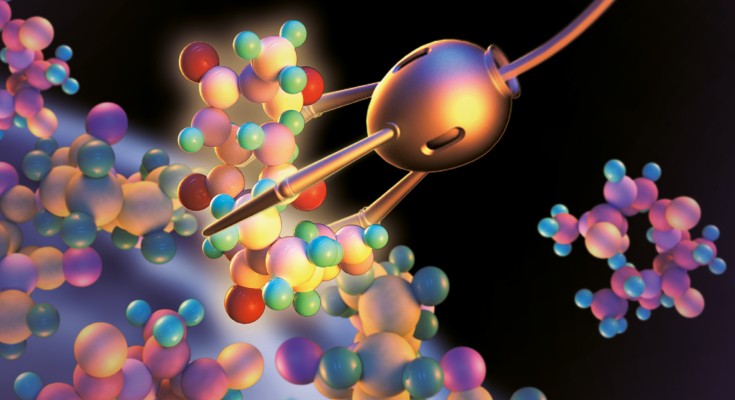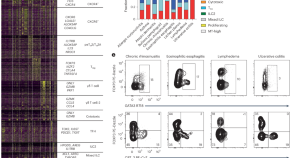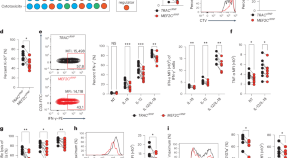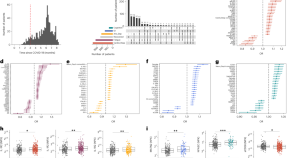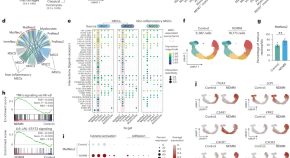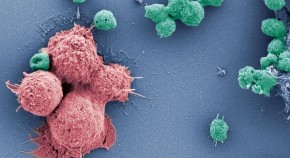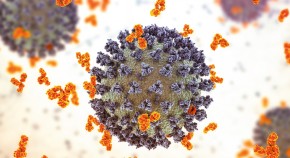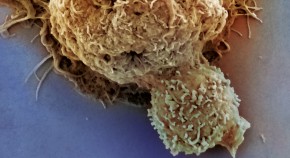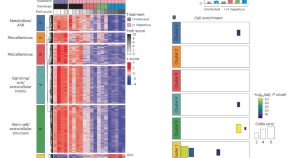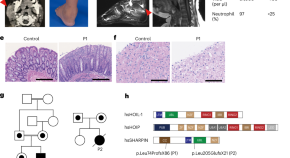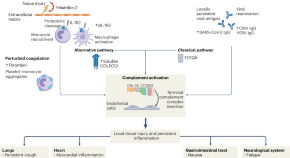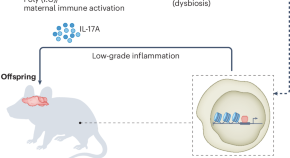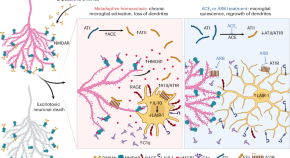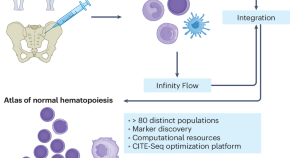Featured
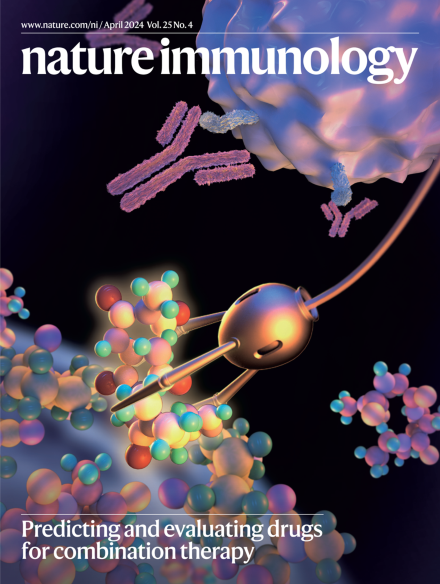
Advertisement
-
-
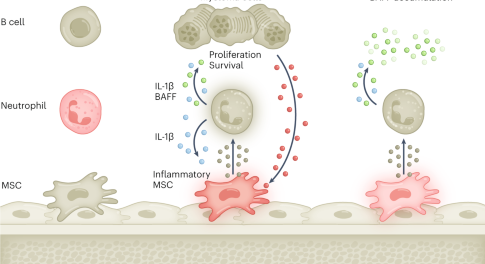
The enduring neutrophil–stroma dance of multiple myeloma
Inflammatory memory cues initiated by neutrophils and bone marrow stroma suggest potential therapeutic targets for the treatment of multiple myeloma.
-
-
Trending - Altmetric
-
Immunological dysfunction persists for 8 months following initial mild-to-moderate SARS-CoV-2 infection
-
Large-scale phenotyping of patients with long COVID post-hospitalization reveals mechanistic subtypes of disease
-
Adaptive immune responses to SARS-CoV-2 persist in the pharyngeal lymphoid tissue of children
-
MEF2C regulates NK cell effector functions through control of lipid metabolism

